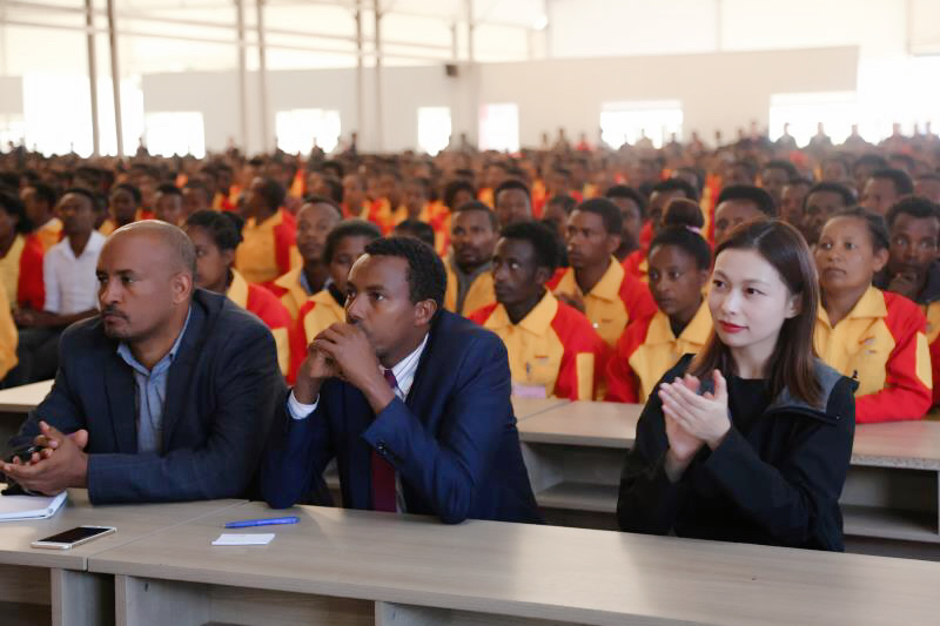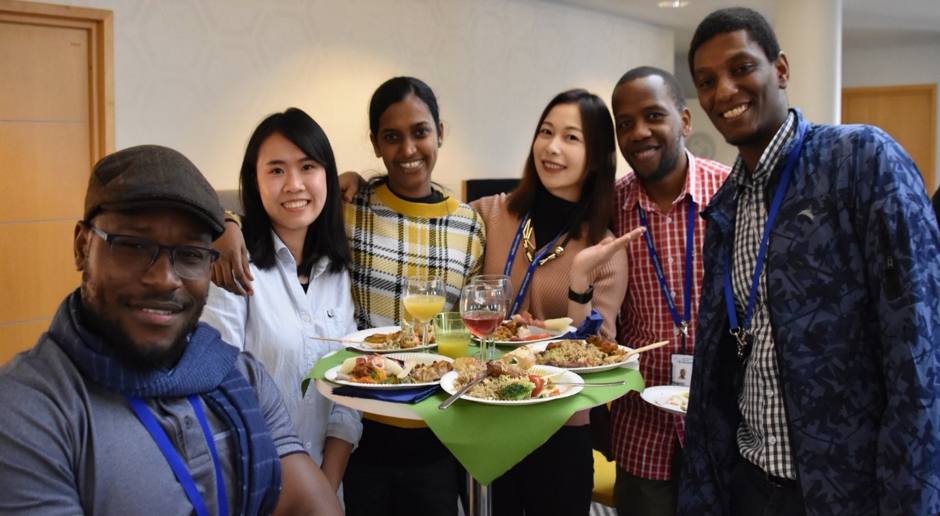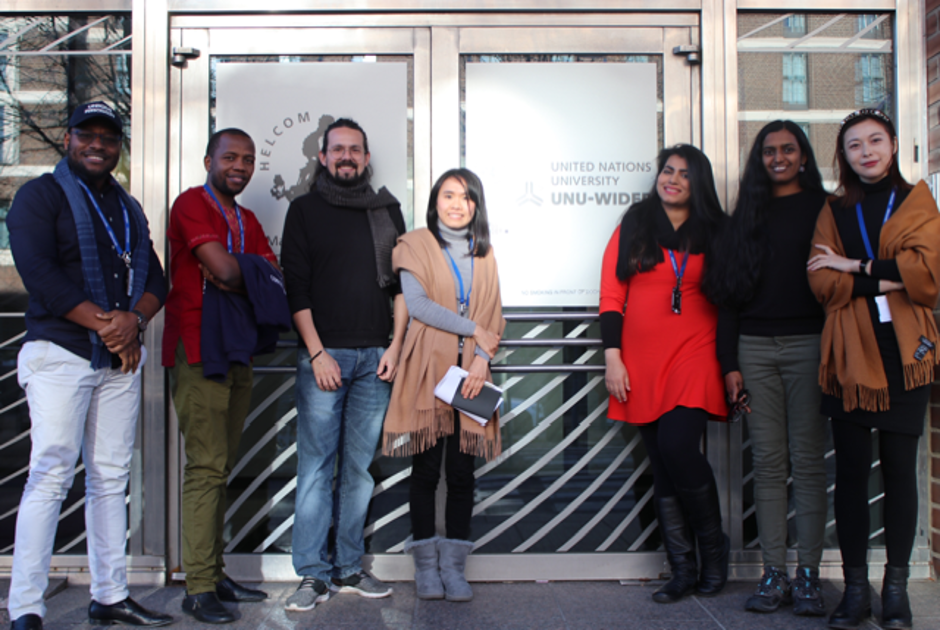Blog
Solving the PhD puzzle
My experience as a visiting PhD Fellow
I am now in my fourth year as a PhD student in development studies at SOAS, University of London, working on my thesis, ‘The Dynamics of Chinese Private Outward Foreign Direct Investment in Ethiopia: A Comparison of Light Manufacturing Industry and Construction Material Industry’. This PhD journey so far has been immensely rewarding, but not without its challenges.
Data, direction, and dilemmas
 Quite early in my PhD, I spent nearly a year conducting fieldwork in Ethiopia, collecting rich primary data (interviews and various participant observations) from a variety of stakeholders on the ground. This was part of the ESRC-DFID-funded research project on Chinese firms and employment dynamics led by Prof. Carlos Oya.
Quite early in my PhD, I spent nearly a year conducting fieldwork in Ethiopia, collecting rich primary data (interviews and various participant observations) from a variety of stakeholders on the ground. This was part of the ESRC-DFID-funded research project on Chinese firms and employment dynamics led by Prof. Carlos Oya.
As a female Chinese researcher, educated at a Western university, my unique identity and range of experience enabled me to understand Chinese investment in Ethiopia with a multilateral lens. While this in some ways helped in the field, I also found myself the subject of suspicion because of my gender, ethnicity and culture. I was suspected by both Chinese and Ethiopian people as a ‘spy’. I also experienced discrimination and even potential sexual harassment in the field, something many female researchers encounter during fieldwork.
Despite these obstacles, I managed to conduct, collect and compile a preliminary analysis of highly valuable data, and a lot of it! It actually turned out that the bigger struggle was dealing with the sheer amount of data I had. I spent two months intensively writing my thesis, attempting to consolidate my findings and move forward in my thesis — but it was overwhelming.
With the encouragement of my PhD supervisor, Carlos Oya, I applied for the UNU-WIDER PhD Fellowship in early 2019. I had high hopes for this fellowship experience, seeing it as an opportunity to work in a new environment and with new people, giving me the direction I needed to mould my data into a solid thesis.
When I found out I was accepted I was ecstatic, but then I experienced visa issues and had to defer the start of my fellowship by two weeks. During this period, I was worried about the possibility of being unable to start at UNU-WIDER and losing the opportunity. ‘We don’t want to lose any good researchers … we will give all the necessary support we can’, was the response from UNU-WIDER, I was so touched to know that they weren’t going to give up on me.
 A lonely road becomes less lonely
A lonely road becomes less lonely
Once I finally arrived it became even more clear that UNU-WIDER were committed to creating a platform and providing all the necessary support to cultivate talent; especially for those from the Global South who might encounter hurdles and have less opportunity to engage with researchers at the top of their field. The support continued as I settled into my new desk with an introduction to my mentor, Rachel Gisselquist, who over the coming three months would empower me to think from different perspectives, to try different methods to analyse my data, and to utilise the resources available at UNU-WIDER to further my ideas. She also inspired me to go into more depth and to maximise my research impact from a policy, empirical and theoretical standpoint.
When compared to being part of a research project working with a team, doing a PhD can be lonely. UNU-WIDER provided a very researcher-friendly environment and allowed me to maximise my interactions with others. One of the highlights for me was just how united our PhD group was. Despite our divergent subject interests and methodologies, the seven of us supported each other. We organised workshops to share our on-going research findings and sought useful feedback from each other. Whenever any of us encountered difficulties, or just tough days, we knew we could rely on each other and the whole UNU-WIDER team for support.
 During my stay I was encouraged to engage with different institutions and attend events around Helsinki, and I was lucky enough to even be invited by the Chinese Confucious Institute at Helsinki University to present the UNU-WIDER paper I was working on. I also got a paper accepted by the CAAC (Chinese in Africa and Africans in China 6th Conference) based on my WIDER working paper, and was interviewed for The China Africa Project podcast.
During my stay I was encouraged to engage with different institutions and attend events around Helsinki, and I was lucky enough to even be invited by the Chinese Confucious Institute at Helsinki University to present the UNU-WIDER paper I was working on. I also got a paper accepted by the CAAC (Chinese in Africa and Africans in China 6th Conference) based on my WIDER working paper, and was interviewed for The China Africa Project podcast.
The direct impact of being at UNU-WIDER for three months was phenomenal. It accelerated my career development and opened up so many opportunities, not just for research but also in expanding my network. It gave me time to consolidate my research and thinking on my thesis, and I was supported with useful feedback to improve my research, which helped me to interpret my data and turn that into a working paper.
My experience at UNU-WIDER felt like all the pieces of a puzzle suddenly starting to come together. WIDER helped me to find the direction I needed to succeed as a researcher at the beginning of my career.
The views expressed in this piece are those of the author(s), and do not necessarily reflect the views of the Institute or the United Nations University, nor the programme/project donors.
 Join the network
Join the network



